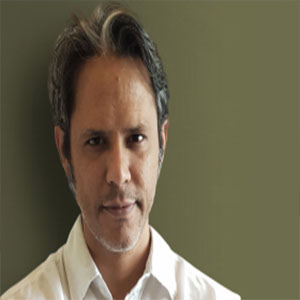Bhanupratap Sharma heads the Institute of Design, Environment, and Architecture at Indus University, Ahmedabad, and is the Principal Architect at Office of Design & Development, Ambli. A Bachelor's in Architecture from CEPT, Ahmedabad and Master's in Urban Design from the University of Toronto, he has worked and collaborated with numerous agencies in India, Middle East, and North America before returning to India with exposure in industry, education & cross-disciplinary pedagogy. His areas of interest are humanities, theory of design and automobiles.
An innovative and creative space, where both practical and theoretical learning goes hand-in-hand, Indus University since its commencement is rightly satiating the varied thrust and need of students who want to get into technical and management field. Funded by Electrotherm Steel Ltd., a pioneer in Induction Melting, TMT and Electric Vehicles, in Gujarat, Indus University today is recognized as a nationally acclaimed university for academic excellence, professional relevance, research and innovation in socially relevant areas, seamlessly integrating Indian values and global ethos, for the diverse techno-pool. Adhered profoundly to the philosophy of 'where practice meets theory', the University ensures state-of-the-art infrastructure along with competent and qualified human resources who engage in research and development activities aimed for building the University. However, for imparting architectural education, the University under its umbrella has initiated the Institute of Design, Environment and Architecture (IDEA), which is unequivocally playing a vital role in generating skilled and informed future architects.
"IDEA acts as a catalyst in bridging the gap between academics and architecture industry requirements. We believe in delivering education in the most efficient and fruitful ways, where our students are assured to develop as per the demand of the market," says Bhanupratap Sharma, HOD, IDEA. Keeping the intake capacity of 40 students, the institute runs a one-of-its-kind five-year Bachelors programme in Architecture, which despite following a conventional system of teaching, is conducted acknowledging a module-based teaching system. Sharma elaborates, "Designed strategically, in this system the subjects similar to each other are categorized as one module and other similar ones as another module. Only one module is functional at a time and runs for its stipulated window of days until it is completed and then the next module begins". Focusing on integrating the syllabus and curriculum with an inclusive approach, the institute emphasizes providing a holistic understanding of the students.
"Focusing on integrating the syllabus and curriculum with an inclusive approach, IDEA emphasizes providing a holistic understanding of the students"
Significantly, the institute classifies the curriculum into five paradigms that have been considered as the most influential towards architectural practice and pedagogy, namely Design Thinking, Social Innovations, Technological Innovations, Urban Innovations and Collaborative Design. Sharma pinpoints, "We have broadly divided the five-year programme into two phases. During the first three years, students are encouraged to discover forms, materials and cultural ethos. The second phase of the academic plan aims to help students to synthesize and integrate what they learned in the school in three years with the current developments and attitudes in the profession". After rendering such a comprehensive package of an academic journey, the students of IDEA are enabled to not only hone their analytical ability but also they become ready to apply them with creativity.
Blended Learning
For achieving a decent place in the world of architecture, what one requires is sound knowledge and skills. And, this fact is deeply kept in mind at IDEA, owing to which the institute has extended meaningful collaborations with various national and international institutions. "We don't let our students stay confined within the ambit of the classroom, rather we expose them to global scenarios and maximum first-hand training, which will assist them in future," claims Sharma.Over the years, IDEA has conducted Collaborative Programs at Morroco, Madrid, Barcelona, Bali, Sri Lanka, Bhutan, Rameshwaram, Maheshwar, Leh, Naddi&Bal - Himachal, Jaipur, Jaisalmer, Jodhpur, Mumbai and so on. "We also collaborate with the agencies and work on publications, under the IDEA Research Cell. Our research on water technologies and sustainability has made us eligible to receive funding from the National Institute of Urban Affairs, for developing workshops on waste management in our course module," proudly says Sharma.
The students of IDEA get the opportunity to obtain instruction from faculty members who hail from institutes like Centre for Environmental Planning and Technology, National Institute of Design, Oxford Brookes University, University of Cincinnati, University of Toronto, University of Pennsylvania and so on, along with guest lecturers from Pan-India and highly experienced visiting faculty who are eminent architects and academicians in the field. "Coupled with rigorous academic training, we also encourage our students to intern in elite organizations like office of Sameep Padora, Bijoy Jain, Biome, Maya Praxis, Surya Kakani (dean CEPT University) and many more," shares Sharma. Students are further made accessed to avant-garde labs with 3D printers, laser-cut machines, CNC machines and so on for realizing their practical and research activities.
"Rendering constant mentoring of faculty members, IDEA motivates the students for self-learning as well. They are provided enough space to think and apply without any distraction. These approaches undeniably help us in maintaining a cent percent placement rate every year," opines Sharma. With the pledge of advancing the students towards a productive professional life and turning them into assets not only to the profession of architecture but to the nation as a whole, IDEA in the coming years, intents to start the Master's Program in Sustainable Material & Technology and targets to highlight research and development in the teaching system to improve manufacturing and building capabilities of the students.


.jpg)